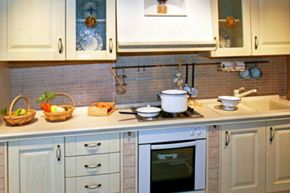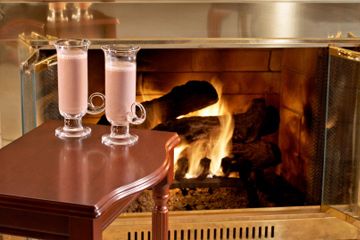Formica is a popular brand of laminate countertops that comes in a large variety of patterns and styles. These countertops are considerably less expensive than granite or tile, but are manufactured to mimic these pricier materials. So, what exactly is a laminate countertop? It's a thin sheet of laminated plastic that adheres to a base, usually made of plywood or particle board. Formica is known to be pretty heavy-duty, and unlike tile, it's scratch-resistant under normal conditions. But to keep your Formica in good shape, countertops need to be cleaned and cared for with some simple guidelines.
What to Use for Your Formica
All you really need to clean Formica is a soft cloth or sponge and a small dollop of mild dish soap. Window cleaner or just plain white vinegar also do a good job. Simply run your cloth under water and ring it out so it's damp but not soaking wet, and give the countertops a good once-over at least once a day, or after heavy use. Formica is typically stain-resistant, but it's still best to clean up spills and messes immediately. Be sure to have another soft cloth on hand to dry off the countertop after cleaning. This will keep water from leaking into the seams in the countertop, which are usually around the side trim. For tougher, caked-on food or crud, use a paste of baking soda and white vinegar for best results.
Advertisement
What Not to Use When Cleaning Formica
Formica, like all other laminates, doesn't play well with abrasive cleaners. So any commercial products with a grit are a big no-no for your laminate countertops. Also, cleansers with an acid content or any other heavy solvents aren't good choices for your Formica -- they'll eventually damage the plastic coating. You should also avoid flooding the counters with a lot of water. The water can seep into the plastic coating, causing it to detach from the base, not to mention it will eventually warp the wood base. An ounce of prevention is worth a pound of cure, so the key to keeping your Formica in great shape is to remember that it's not a good candidate for heat and flames. Be sure to use a trivet and avoid putting down hot pans from the stove or oven directly on the surface; they'll leave a scorch mark. And keep a cutting board handy, because although Formica is known to be scratch-resistant, a knife will likely leave a permanent cut in the surface.
Advertisement



